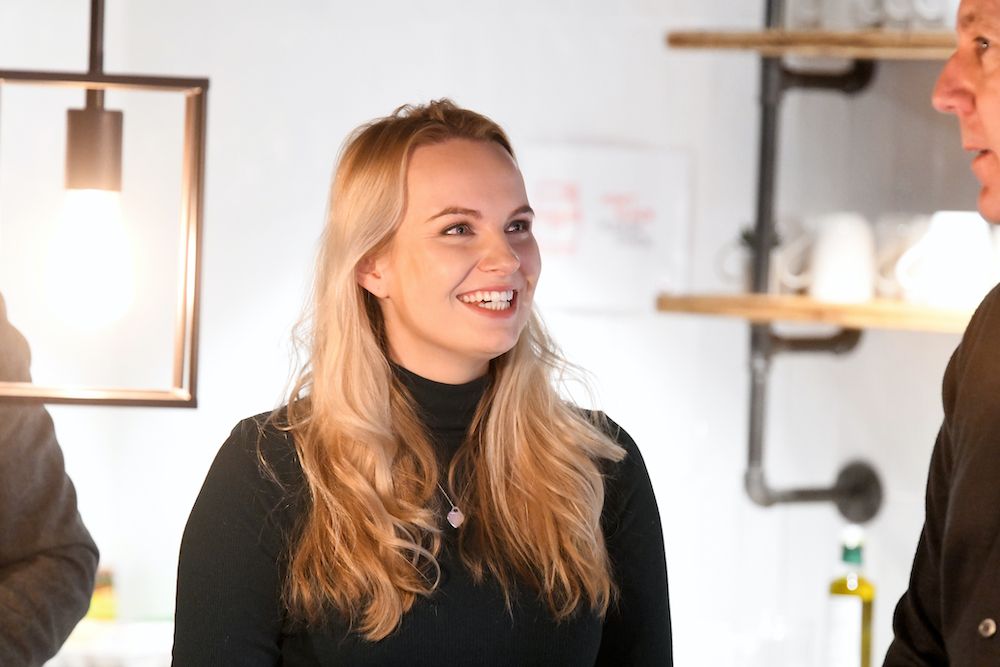Could virtual reality be the key to overcoming social anxiety?
When you think of ‘virtual reality’, your mind may automatically go to hi-tech games and far-off digital lands – but this innovative technology may also have a more practical use for us, right here on planet Earth.
Virtual reality, or VR, is a computer-generated 3D simulation of an environment, which you can interact with by wearing a specialist headset. Once the headset is on, you’re totally immersed in the virtual world that you have entered, and you may be able to move around and interact with the scene using other compatible devices, such as gloves or handsets.
Already set to reform the entertainment industry, in March 2020 it was announced that the NHS was due to start using VR therapy to help people overcome social anxiety. In a programme called ‘OVR social engagement’, created by VR therapy company Oxford VR, cognitive behavioural therapy (CBT) techniques were translated into immersive VR environments, which patients would enter during weekly sessions.
In life-like environments, users ‘complete’ daily tasks, such as going into a supermarket, paying for items, or catching a bus. For people who struggle with social anxiety, scenarios like these can be problematic, but the goal of VR therapy is to help them take what they are able to learn from the virtual experience and apply it to the real world.
In some ways, it’s an intermediate step towards exposure therapy – a technique to help clients overcomes their fears and phobias by being ‘exposed’ to them in a safe, controlled environment – that VR therapy taps into, while clients have the added layer of comfort in knowing that they are just in a simulation.
It’s an approach that Sophie Thompson stumbled upon by accident, but which she now points to as the key to overcoming her social anxiety.
“I was always shy as a child, unless I was around my friends or classmates,” Sophie explains, as she reflects back on her journey. “As I got older, this started to limit my life. I didn’t apply for universities where I’d have to interview, I’d ask my friends or family to order for me in a restaurant, and – sometimes – I’d hide upstairs if we had guests, as I felt too anxious to speak to people I wasn’t already familiar with. There were even a few times where I didn’t leave the house because I didn’t want people to see me.”
The idea of using VR to combat these feelings never occurred to Sophie, until later in life. She was anxious about an upcoming public speaking appointment when her business partner – Dom Barnard, who was working in the VR department of a big company – suggested that VR could be useful to practise her speech before she did it for real.
“I had heard of VR before but hadn’t tried it, so I didn’t understand the power it has to trick your mind into thinking and feeling like you’re somewhere else,” Sophie says.
“Practice makes perfect when it comes to many skills, and communication skills, like public speaking, are no exception. For some reason, we’re expected to have these skills, and pick them up naturally, but no one would ever expect you to just know how to play the violin because you’ve seen other people do it!
“I needed to speak to new people, and deliver presentations, to overcome my fear, but my fear was so bad that I completely avoided it, so I was stuck.”
It’s a scenario that will be familiar to many people with social anxiety, where avoidance behaviours – when someone takes conscious action to stay away from the things that scare them – are commonplace. It can be hard to take the first step to exposing yourself to a scary situation when all the anxious thoughts of ‘What if I mess up?’, ‘Will they like me?’, ‘Will they think I’m stupid?’, ‘What if I forget my lines?’ are rushing around your head. But this is where VR comes in.
“VR provided me with a psychologically safe environment that could evoke the same fear response as real life, except there were no real-world consequences,” Sophie explains. “It was like exposure therapy for me – it gave me the opportunity to build up my skills and confidence, without fear of judgement. I could recreate social or speaking situations whenever I wanted to, which ranged from audiences of just two people, to begin with, and then I built my way up to hundreds. This VR practice bridged the gap between having the practical skills and, crucially, the confidence to speak in real life.”
"It was like exposure therapy for me – it gave me the opportunity to build up my skills and confidence without fear of judgement"
After her experience, Sophie went on to found VirtualSpeech with Dom, a VR app that offers online courses in public speaking, sales pitching, interviews, presentations, and more. Just six months after launching, the app has more than 100,000 users.
“Best of all though,” says Sophie, “I can now order my own coffee and speak to new people with no anxiety at all!”
In a time when we often reflect on the negative impact that technology is having on our wellbeing, the rise of innovative programmes that can support and transform our mental health is not just comforting, but inspiring. And for those who have struggled with the initial push it takes to start challenging fear and anxiety, the next steps could be virtually within reach.
Beyond CBT, VR is being adapted by other wellbeing professionals, such as life coaches and hypnotherapists, who offer sessions that incorporate this technology in order to help clients reach their personal goals. These virtual environments can aid people in developing self-awareness, as well as offering a space to practise skills to help them overcome challenges.
To connect with a counsellor who can help you overcome your social anxiety, visit counselling-directory.org.uk


